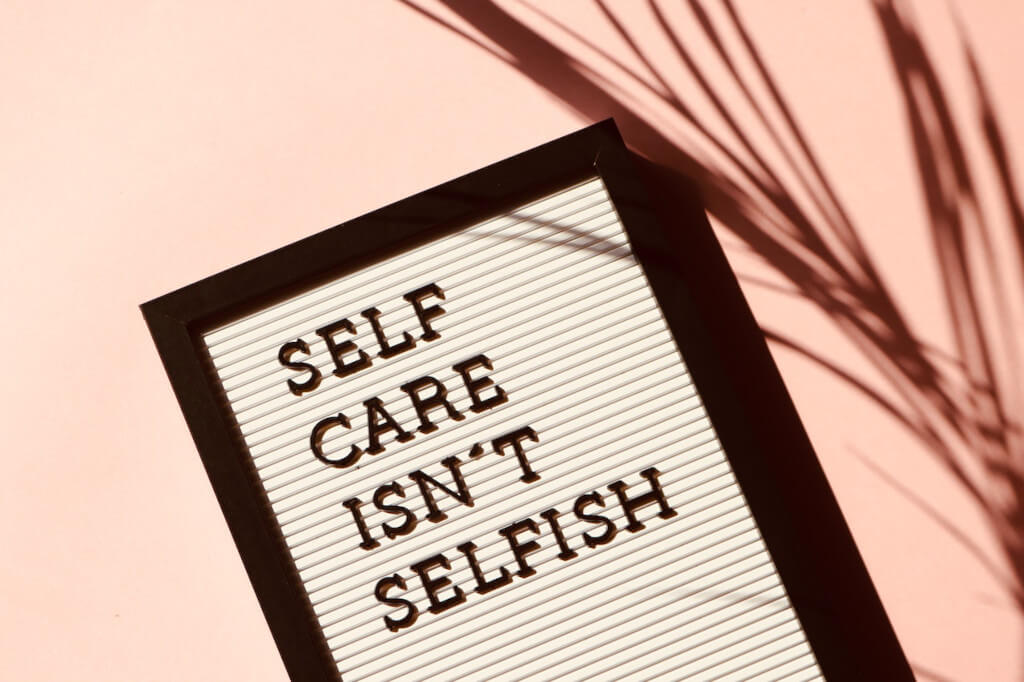When people decide they want to get healthier by eating less and exercising more, they frequently brace themselves to say “no” to some of their most treasured habits, such as the foods they eat, the television shows they watch (in order to make time for the gym), or the ways in which they like to incentivize themselves after enduring an ordeal.
The problem is that there isn’t anything positive to take away from this. There is nothing that will keep people inspired to continue doing these things over a longer period of time. Additionally, and regrettably, what matters, in the long run, is how things turn out. When this occurs, there is a greater potential for discernible change as well as intrinsic changes toward enhanced feelings of well-being. When this happens, you will begin to see the fruits of your labor.
Therefore, the question that needs to be asked is: how can we make the negative word “no” constructive? Are you able to do that without experiencing feelings of deprivation? Because, there is no doubt about it, if your objective is to reduce your body fat and increase the amount of physical activity you get, you are going to need to say “no” to a number of the activities you do now in order to you can substitute those behavioral patterns with others that are more in line with your objectives regarding weight loss and physical activity.
It Begins With Consciousness
When we first set out with the objectives of reducing our body fat and increasing the amount of physical activity that we get, we have to come to terms with the ways in which we have structured our eating and exercise routines in the past. What is it that we find valuable about the way in which we conduct those activities?
We have planned our meals and our workouts so that they complement the way we like to live our lives. To be fair, the set-up is frequently a reaction to the existing conditions in one’s life. If this is the case, then the way in which one prefers to roll is also inevitably a reaction to the things that one has been dealt by life. The decisions we’ve made in the past have a direct bearing on how we live our lives today.
The realization that our actions have predetermined consequences for us when it pertains to our well-being is the first step toward gaining awareness. In accordance with the Centers for Disease Control and Prevention (CDC), it is approximated that up to 70% of deaths from chronic illnesses are the immediate consequence of decisions that people make regarding their way of life.
The results we experience are a direct result of our behaviors. It is essential that we acknowledge the fact that modifying some of our actions is necessary in order for us to achieve a different result for ourselves if we so desire.
Being Aware of Our Routines Involving Food
How we eat is, in many ways, directly related to who we are as individuals. It’s possible that the rest of the family looks to us to serve as a steadying influence on their lives. That is to say, “Thanksgiving is always at our house,” and “We must have lots of cheese and butter on the potato dish, or the relatives would rebel!” Or, “We have a lot going on right now. On Friday evenings, it’s always a pleasure to place an order for pizza.These are problems that entail the expectations of both individuals and their families. There are certain customs that may have begun many years, or even decades, in the past.
It’s highly likely that the cultures or expectations in question were established for a variety of reasons, but the fact remains that many aspects of them are random. In other words, you are free to rearrange things however you see fit, and the world will not come crashing down around you. Coming to terms with this is a significant step toward mastering the “no” skill.
The Consciousness We Have Regarding Exercise Routines
Motivating yourself to work out can be extremely beneficial. It makes us feel good, and it assists us in improving how we present ourselves to other people. Although it is an excellent method for taking care of ourselves, many of us have trouble allocating the necessary amount of time to do so even though we know it is important. Then again, we have a great number of other stuff competing for our attention right now.
This is where the word “no” comes into play. In order to establish a new routine of moving around more frequently, you will need to break the habit of some of the things you do on a regular basis first. This implies that you will need to stop doing some of the stuff that you are currently doing because they take up too much of your time.
Trying to say “no” to something you enjoy doing for yourself, like watching Television as a way to relax, is one example of what this can entail. It may entail devising strategies to make chores and food shopping more efficient so that you have more time to devote to physical activity. Or it could even mean not doing certain errands that you think are necessary, or doing them less frequently.
Would it be possible for you to postpone a phone conversation with a friend until after you’ve finished your workout? Can you inform your spouse, partner, or friend that you intend to start exercising for longer periods of time and that this will result in a change to the routine that you have become accustomed to?
Transform a “No” Into a Positive Experience
Provided all of this, is it plausible to transition into a fresh set of habits regarding eating and exercising without experiencing feelings of deprivation? The answer can be found in an examination of the dynamics of human motivation.
Change requires a fuel, and motivation is that fuel. On the other hand, we have frequently been given inaccurate information regarding how that operates. It might appear that motivation is a factor that helps us grit our teeth and power through a latest diet or workout routine, but this isn’t necessarily the case. According to the findings of the research, this doesn’t result in changes that are sustainable over time. This kind of motivation is short-lived.
The reality is that the urge to be successful is at the heart of this type of motivation. This is something we hope to achieve in the near future for ourselves. Whenever that future appears to be one of deprivation, it is natural for an individual to begin to question whether or not it is truly worthwhile.
When an individual is forced to follow a certain diet or workout routine, the changes that result are:
- (1) Not chosen by the individual
- (2) Are not typically viewed as a wholesome trend.
Instead, the individual is given a selection of either-or choices, in which they are either on the program or they are not.
Rather, what we want to accomplish is to foster the type of motivation that is refueled by one’s achievements. How? By separating each of the behaviors into its component parts. And not just any little pieces either. It has been demonstrated that one of the most effective ways to effect long-term change is to make small changes; however, these modifications cannot be haphazard or random.
There is a need for direction regarding the adjustments that should be made in order to keep a person on course to achieve objectives that are connected to the larger picture. The minor adjustments need to have the following four characteristics:
- The individual who wants the change should have some say in the selection of the smaller bits that make up the change, but they should do so within certain parameters.
- The individual then must have the ability to concentrate on the change at hand and learn any new skills that are required in order to successfully implement each transition (learning some basics about nutrition, for example).
- The individual must be prepared to start practicing the change repeatedly, and they should expect to receive encouragement at every step of the way.
- It is essential to celebrate the individual’s advancement and make them aware of how far they have come as the process of transformation unfolds.
Developing long-term motivation in a person requires providing them with a feeling of independence and achievement at every stage of the process. It is important to keep the long-term objective in mind, but it is also appropriate to celebrate accomplishments along the way.
The important thing is to establish a link with the reasons why some choices were made previously, and then to invent different decisions that are equally valuable but are in line with the emerging rendition of the individuality that the individual wishes to achieve in the future. A “no” answered in this manner is, in effect, a “yes” to a different question.

Self-care is a term that seems to be everywhere these days, whether it be in…

In the context of evidence-based preventive medicine, the term “lifestyle medicine” refers to a method…

Looking for a reliable and user-friendly online video downloader? Look no further than Movavi Screen…




